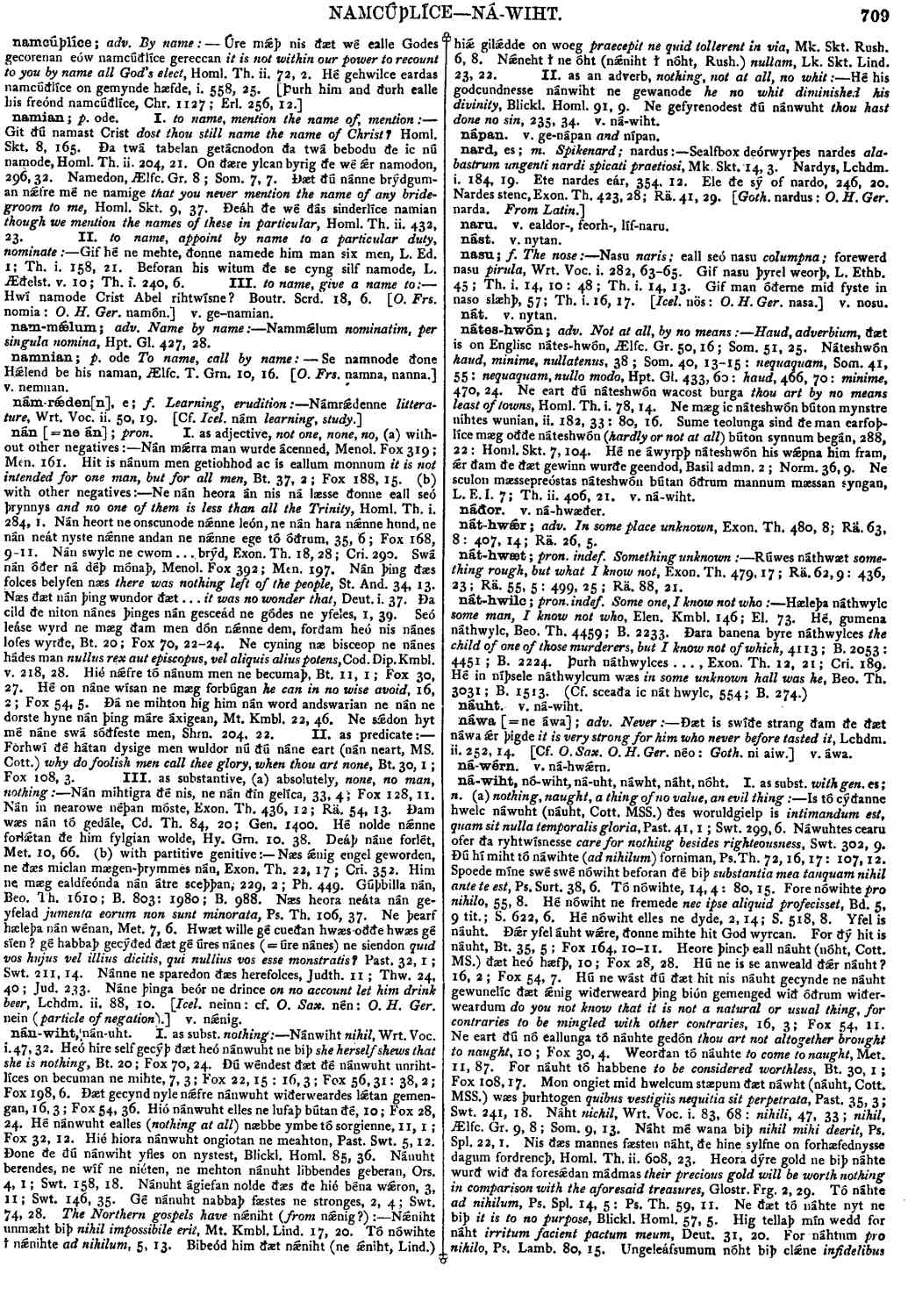nátes-hwón
- adverb
-
Haud, adverbium,
ðæt is on Englisc nátes-hwón,
- Ælfc. Gr. 50, 16 ;
- Som. 51, 25.
-
Náteshwón
haud, minime, nullatenus,
- 38 ;
- Som. 40, 13-15 :
nequaquam,
- Som. 41, 55 :
nequaquam, nullo modo,
- Hpt. Gl. 433, 60 :
haud,
- 466, 70 :
minime,
- 470, 24.
-
Ne eart ðú náteshwón wacost burga
thou art by no means least of towns,
- Homl. Th. i. 78, 14.
-
Ne mæg ic náteshwón búton mynstre nihtes wunian,
- ii. 182, 33: 80, 16.
-
Sume teolunga sind ðe man earfoþlíce mæg oððe náteshwón (
hardly or not at all
)búton synnum begán,
- 288, 22 : Homl. Skt. 7, 104.
-
Hé ne áwyrpþ náteshwón his wǽpna him fram, ǽr ðam ðe ðæt gewinn wurðe geendod,
- Basil admn. 2 ;
- Norm. 36, 9.
-
Ne sculon mæssepreóstas náteshwón bútan óðrum mannum mæssan syngan,
- L. E. I. 7 ;
- Th. ii. 406, 21.
Bosworth, Joseph. “nátes-hwón.” In An Anglo-Saxon Dictionary Online, edited by Thomas Northcote Toller, Christ Sean, and Ondřej Tichy. Prague: Faculty of Arts, Charles University, 2014. https://bosworthtoller.com/23441.
Checked: 1